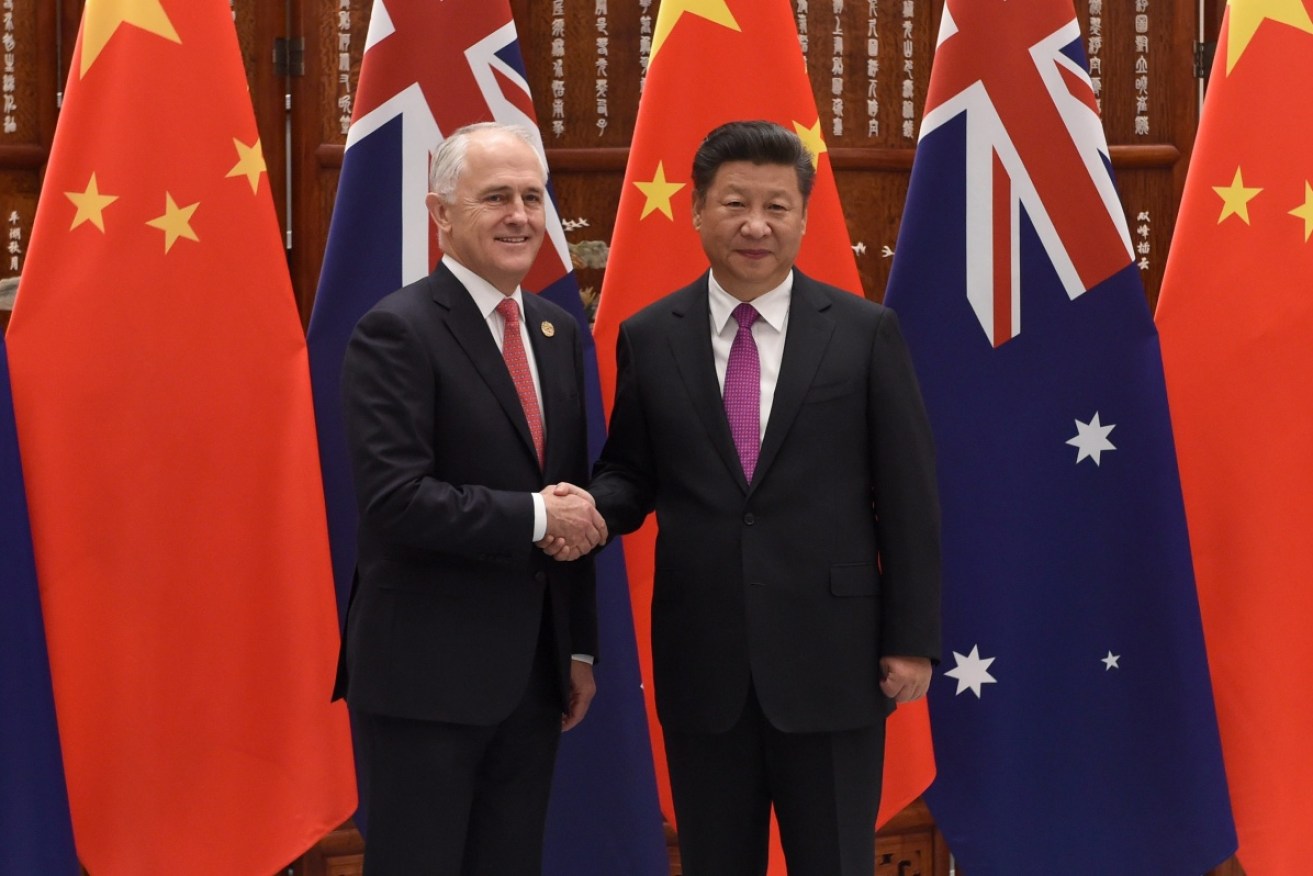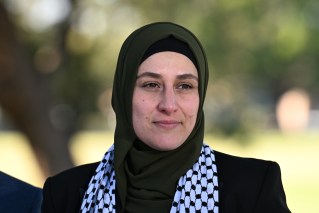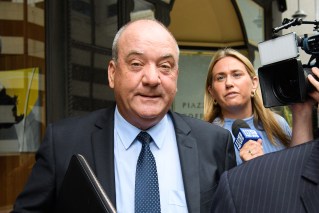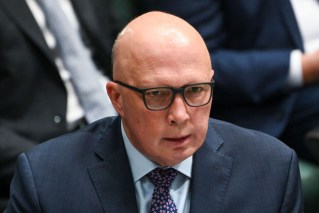Nearly 80 per cent of foreign political donations come from China, data shows


Australia and China were involved in a war of words over foreign interference late last year. Photo: AAP
Nearly 80 per cent of the foreign donations made to Australia’s political parties since the year 2000 were linked to China, a study of electoral commission data has revealed.
As Malcolm Turnbull vows to stand up to Beijing amid growing concerns over foreign interference, an analysis of Australian Electoral Commission data suggests an overwhelming proportion of the millions spent by foreign donors comes from Chinese nationals or entities.
Chinese donors poured just over $12.6 million into the Australian political process between 2000 and 2016, which represented 79.3 per cent of all foreign donations, according to the analysis by the Melbourne Law School Dollars and Democracy Database.
Of the $900,000 donated to political parties in 2015-16, $850,000 – or 94.4 per cent – came from confirmed or likely Chinese nationals or entities, the study by Malcolm Anderson and Joo Cheong Tham found.
The analysis, provided to The New Daily, showed particular spikes in contributions during election years, with Chinese contributors spending $5.1 million in 2013-14, $1.05 million in 2012-13 and $1.6 million in 2006-07. Mr Anderson predicted the 2016-17 data would show a similar spike.
The researchers also found the Labor side of politics was more popular with Chinese donors, with the party receiving about $7.3 million since 2000-01, compared with about $5.4 million for the Coalition.
But since the 2013 election, the Coalition has been showered in donations, getting $1.6 million (23 donations) in 2013-14, $572,000 (seven donations) the following year, and $700,000 (three donations) in 2015-16.
Labor, meanwhile, received $3.5 million (27 donations) in 2013-14, but only $360,000 (three donations) and $150,000 (two donations) in subsequent years.
Announcing new laws to crack down on foreign interference and ban foreign donations last week, Prime Minister Malcolm Turnbull said the reforms were “not about any one country”.
But after the Prime Minister noted the existence of Chinese interference in Australia, Chinese officials reacted furiously, lodging an official complaint and saying Mr Turnbull had poisoned “the atmosphere of the China-Australia relationship”.
The war of words also comes as the government demands the resignation of embattled Labor senator Sam Dastyari over a string of Chinese donations scandals, including claims he provided counter-surveillance advice to the wealthy Chinese benefactor Huang Xiangmo.
Senator Dastyari has faced sustained criticism from the government for appearing to parrot Chinese foreign policy talking points in 2016 after Mr Huang threatened to withdraw a donation to Labor.
Overall, foreign donations make up less than 2 per cent of contributions each financial year on average, but both major parties have been under pressure to ban the money due to growing concerns about foreign influence.
The Turnbull government’s reforms, which have the initial backing of the opposition, will make it easier to prosecute spies, create a register for foreign agents, as well as banning donations from overseas.
Laws will be subverted
Mr Anderson, co-author of the research, said despite Mr Turnbull saying the new laws were not aimed at China, the data suggested otherwise.
He stressed some of the money was just standard corporate donations, but said donors had three motivations. Gift giving was a common part of Chinese culture and usually transactional, he said.
“Sometimes they give genuine gifts, a gift from the heart,” he told The New Daily.
“Secondly, they also often give because they want their firms to get access. The third thing in the mix is that these are also often loyal members of the Chinese Communist Party, or have strong relationships with them, and they will be expected to push the normal line on issues such as Taiwan.
“Those three things go together.”

Foreign ministry spokesman Geng Shuang said the PM had poisoned relations. Photo: AAP
Mr Anderson said the decision to ban foreign donations was a “good step”, but warned it was nigh on impossible to totally prevent such contributions.
“It will send a signal, but it will be subverted in the long run,” he said.
“The way they get around it and will get around it is by taking up Australian citizenship. That’s the thing that you can’t stop.”
Former Chinese diplomat Chen Yonglin, who defected in 2005 while working in Australia, said he was not at all surprised by the extent of Chinese money flowing into the Australian political process.
“Western democracy is now under attack from the Chinese regime,” Mr Chen told The New Daily.
China’s Foreign Affairs spokesman Geng Shuang said last week Beijing was “astounded” by Mr Turnbull’s suggestion China was interfering in Australian politics.
“Such remarks simply cater to the irresponsible reports by some Australian media that are without principles and full of bias against China,” he said.
But Mr Chen accused Beijing of hypocrisy, saying China’s own anti-espionage and foreign interference laws were “extremely strict”.








